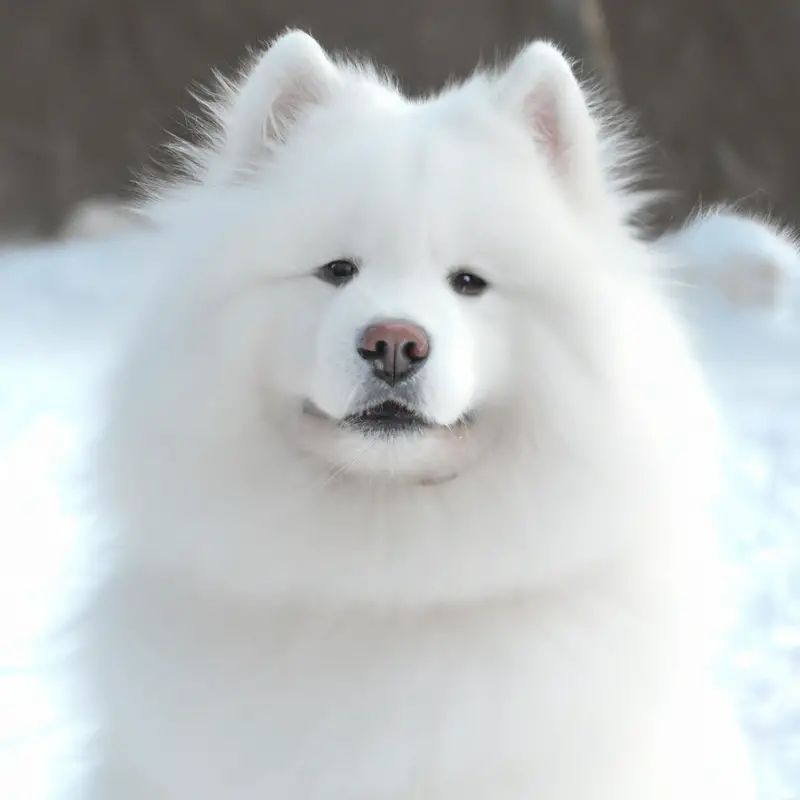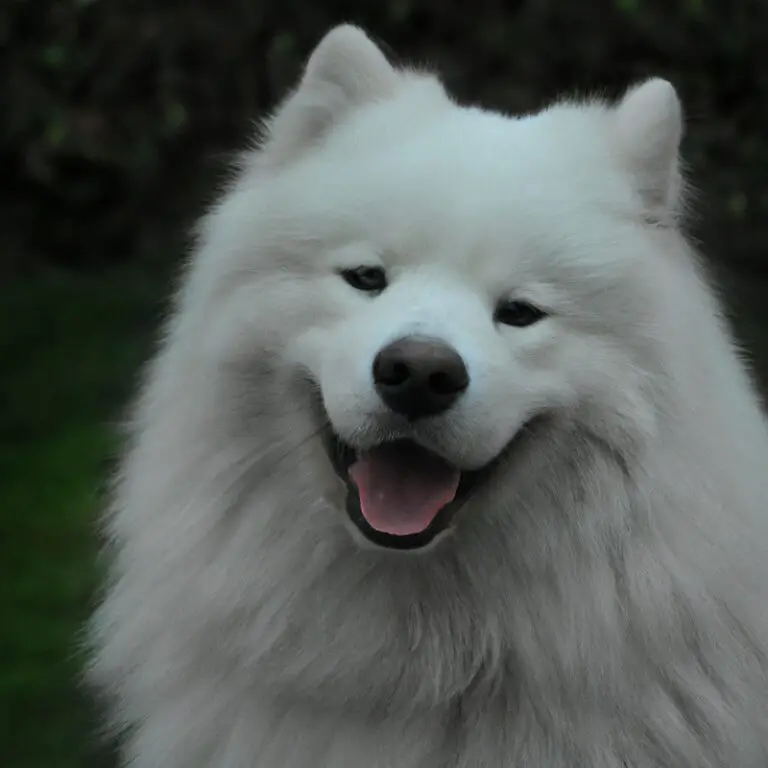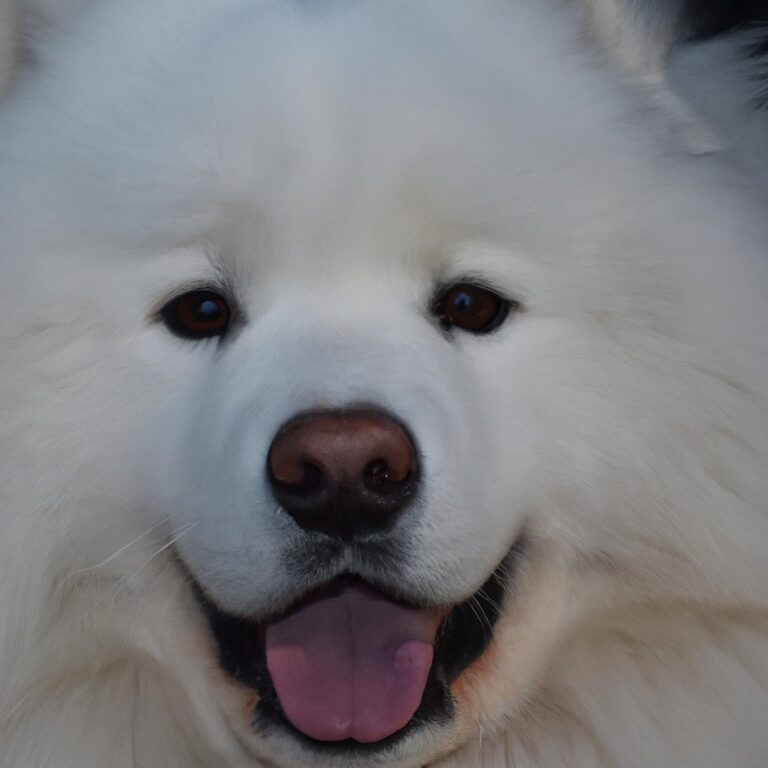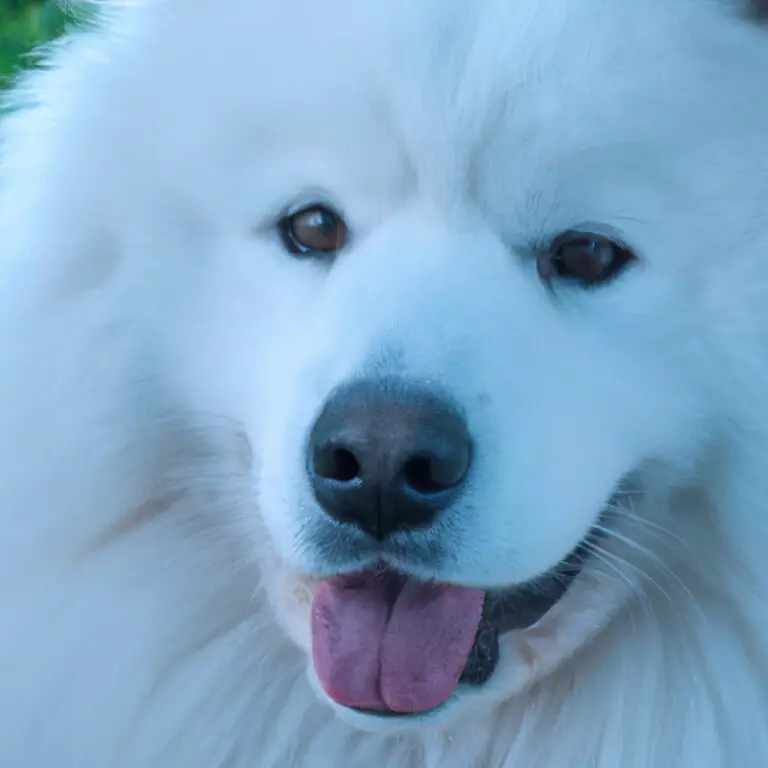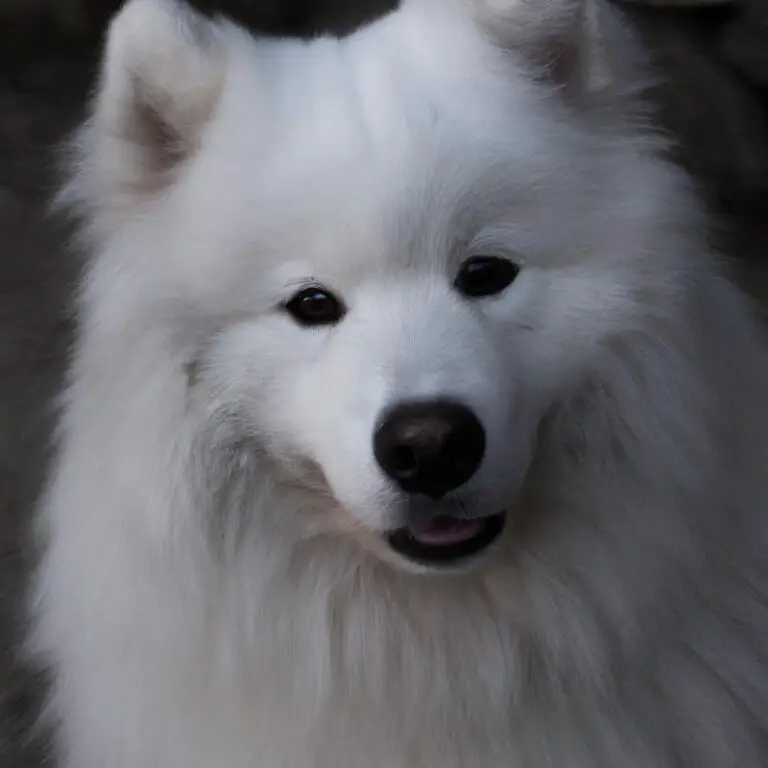Can Samoyeds Live In Colder Climates?
Key Takeaways:
- Samoyeds are well-adapted to cold climates, thanks to their thick double coat and history as sled dogs in Siberia.
- With proper care and shelter, Samoyeds can thrive in colder climates, as long as they are protected from extreme cold and harsh weather conditions.
- It’s essential to monitor Samoyeds’ health in colder climates and provide them with adequate exercise and mental stimulation to prevent boredom and behavior issues.
- Samoyeds may require additional grooming and coat maintenance in colder climates to keep their fur clean, healthy, and free from matting.
Have you ever wondered if Samoyeds can handle the chill of colder climates? Well, you’re in luck because today I’m here to shed some light on this fascinating topic.
As a passionate dog lover and owner of a delightful Samoyed, I can assure you that these fluffy companions are the epitome of cold weather endurance.
We’ll explore their natural habitat and physical characteristics that make them perfect for chilly environments. Plus, I’ll share some valuable tips to ensure your Samoyed stays cozy and comfortable throughout the winter months.
So sit back, grab a warm drink, and let’s dive into the world of Samoyeds in colder climates!
| Yes | No | |
| Thick double coat | ✔️ | ❌ |
| Cold tolerance | ✔️ | ❌ |
| Adaptability to low temperatures | ✔️ | ❌ |
| Additional measures required for extreme cold | ❌ | ✔️ |
| Exercise needs | ✔️ | ✔️ |
| Availability of proper shelter | ✔️ | ✔️ |
Can Samoyeds live in colder climates?
Samoyeds’ natural habitat and origins
Samoyeds originated from Siberia, where they were bred by the Samoyede people to work in cold climates. These dogs are well adapted to harsh, snowy conditions and have a thick double coat that keeps them warm.
They are built to withstand freezing temperatures and have a strong work ethic.
Samoyeds thrive in colder climates and are happiest when they can play in the snow. Their natural habitat is in regions with cold weather, making them ideal companions for those living in colder areas.
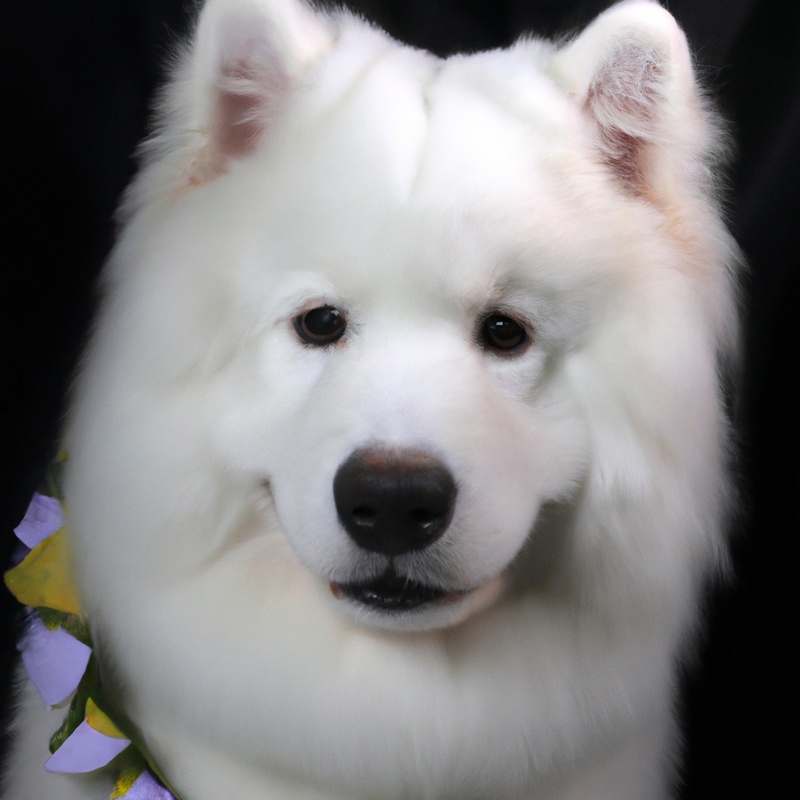
Physical characteristics that make Samoyeds suitable for cold climates
Samoyeds have physical characteristics that make them perfectly suited for cold climates. Their thick double coat acts as insulation, keeping them warm in freezing temperatures.
The outer coat is made up of coarse and straight guard hairs that repel moisture, while the dense undercoat provides additional warmth.
Their bushy tails can be wrapped around their face to protect against icy winds. Samoyeds also have large, well-padded feet that help them navigate icy terrain.
These features allow them to thrive in cold environments and make them an ideal companion for colder climates.
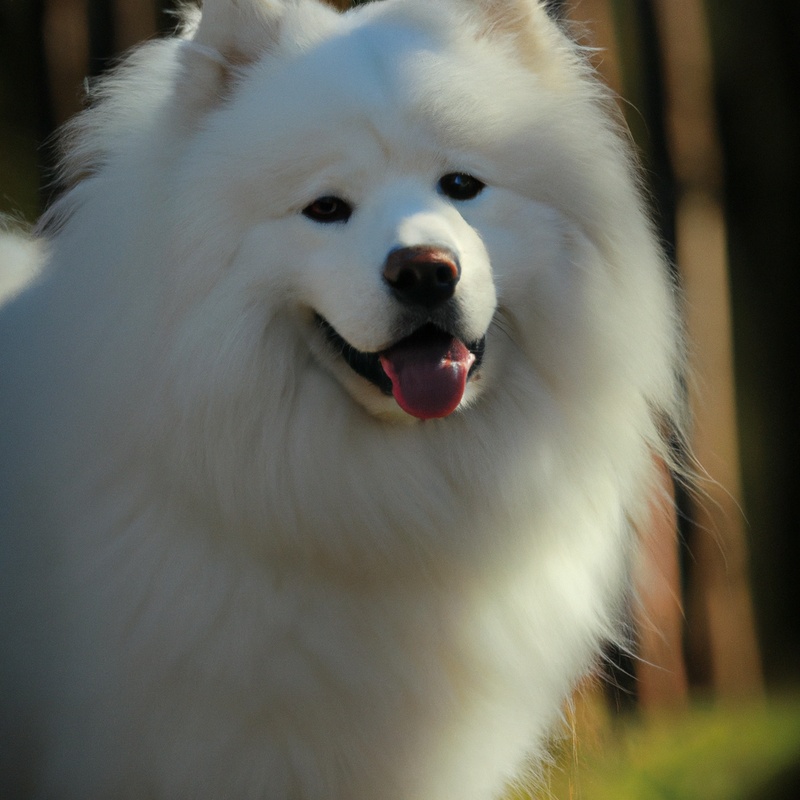
How Samoyeds adapt to colder climates
Samoyeds have a natural ability to adapt to colder climates. Their thick double coat provides insulation and protection against extreme temperatures.
They also have a muscular build that helps them generate and retain body heat.
Additionally, their paws are equipped with furry pads that act as insulation and prevent frostbite. Samoyeds are well-equipped to thrive in cold environments, making them a great choice for colder climates.
Special considerations for keeping Samoyeds in colder climates
While Samoyeds are well-suited for colder climates, there are some special considerations to keep in mind. Firstly, their thick double coat requires regular grooming to prevent matting.
Secondly, they need proper shelter and protection from extreme temperatures.
Providing them with a warm and insulated doghouse or allowing them inside during extreme cold is essential. Thirdly, keep an eye out for signs of frostbite, especially on their ears and paws.
Regular exercise is also crucial to keep them physically and mentally stimulated in colder climates.
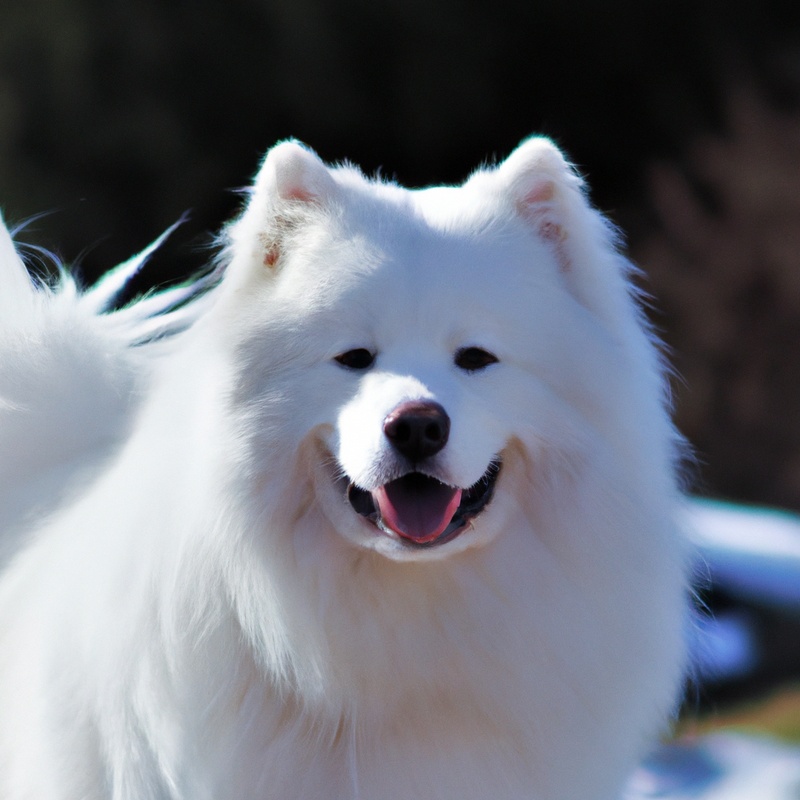
Tips for keeping Samoyeds comfortable in colder climates
Providing a suitable shelter for Samoyeds in colder climates
To provide a suitable shelter for Samoyeds in colder climates, there are a few key factors to consider.
Firstly, ensure the shelter is well-insulated and protected from harsh winds.
Remember, Samoyeds have a thick double coat, but they still need a warm space.
Secondly, provide enough straw or bedding to keep them comfortable and prevent them from lying directly on the cold ground.
Finally, consider adding a heated bed or a heat lamp to provide extra warmth during extremely cold temperatures.
These steps will help keep your Samoyed safe and comfortable in colder climates.
Proper nutrition and hydration for Samoyeds in colder climates
Samoyeds in colder climates require proper nutrition and hydration to stay healthy.
Here’s what you need to know:
- Provide a balanced diet: Feed your Samoyed high-quality dog food that contains real meat, vegetables, and grains. Look for formulas specifically designed for winter or cold climates, as these may have additional nutrients to support their immune system.
- Extra calories: In colder weather, dogs burn more energy to keep warm. Consider increasing your Samoyed’s food intake to provide the extra calories they need. Keep an eye on their weight to ensure they stay at a healthy level.
- Hydration is key: Even though it’s cold, Samoyeds still need access to fresh water. Dehydration can be a risk, so make sure they have a clean water source available at all times. Consider using heated bowls to prevent freezing in extremely low temperatures.
- Supplements can help: Certain supplements like fish oil, which contains omega-3 fatty acids, can support your Samoyed’s coat and skin health, which is essential in colder climates. Consult with your veterinarian to determine if any additional supplements are needed.
Remember, each Samoyed is unique, so it’s important to monitor their individual needs and consult with a veterinarian for personalized advice.
Exercise and mental stimulation for Samoyeds in colder climates
To keep your Samoyed active and mentally stimulated in colder climates, consider the following:
- Daily walks: Take your Samoyed for regular walks, even during colder weather. Ensure they are properly dressed to protect them from the cold.
- Indoor games: Engage your Samoyed in interactive games like hide-and-seek or puzzle toys indoors to keep them mentally stimulated.
- Indoor exercise: Create an indoor exercise space for your Samoyed, where they can run, jump, and play. Use toys like balls or ropes for them to chase and tug.
- Training sessions: Samoyeds are intelligent and thrive on mental stimulation. Train them with obedience commands and fun tricks, which will challenge their minds.
- Doggy playdates: Schedule playdates with other friendly dogs to allow your Samoyed to socialize and engage in physical activities.
Remember, regular exercise and mental stimulation are important for your Samoyed’s overall well-being, even in colder climates.
Grooming and coat care for Samoyeds in colder climates
To keep your Samoyed comfortable in colder climates, proper grooming and coat care are essential. Here are a few tips to help you out:
- Regular brushing: Brush your Samoyed’s thick coat regularly to remove loose fur and prevent matting. This will also help to distribute the natural oils in their coat, keeping it healthy and insulated.
- Bathing: Limit baths to once every few months, as frequent bathing can strip away the natural oils that protect their coat. Use a moisturizing shampoo and conditioner designed for dogs to prevent dryness.
- Trimming: Keep the hair around their paws and sanitary areas trimmed to prevent ice balls and maintain hygiene.
- Paw care: During winter walks, protect their paws from ice, salt, and other irritants by using paw balm or booties. After walks, wipe their paws to remove any salt or chemicals.
- Moisturize their nose and paw pads: Apply a pet-safe moisturizing balm to their nose and paw pads to prevent dryness and cracking caused by cold weather.
- Limit outdoor time: While Samoyeds tolerate cold weather well, it’s important to limit their exposure to extreme temperatures. Provide them with a warm and sheltered space indoors.
Frequently Asked Questions
Can Samoyeds tolerate extreme cold temperatures?
Samoyeds are known for their ability to tolerate extreme cold temperatures. With their thick double coat, they have a natural insulation that helps keep them warm in freezing conditions.
They were originally bred to withstand the harsh Arctic climate, so their bodies are adapted to handle cold weather.
However, it’s important to provide them with proper shelter and protection from the elements to ensure their well-being in extremely cold temperatures. Regular exercise and monitoring your Samoyed’s body language can also help you determine if they are comfortable in cold conditions.
Can Samoyeds live outside in colder climates all year round?
Yes, Samoyeds can live outside in colder climates all year round.
They have a thick double coat that provides excellent insulation against the cold.
Their fluffy tails keep their noses warm when they curl up to sleep.
Samoyeds were bred to thrive in Arctic conditions, so they are well-suited to colder climates.
However, it is still important to provide them with proper shelter, such as a insulated dog house or a heated outdoor space, to protect them from extreme temperatures.
Additionally, it’s crucial to monitor them closely and make sure they have access to fresh water that doesn’t freeze.
Should I use clothing or booties to protect my Samoyed from the cold?
Yes, you can use clothing or booties to protect your Samoyed from the cold.
Clothing such as sweaters or jackets can help keep them warm and comfortable during chilly weather.
Booties, on the other hand, can protect their paws from cold surfaces and potential injuries.
Just make sure the clothing or booties fit properly and are comfortable for your furry friend.
Observe your Samoyed’s behavior and comfort level to determine if they need extra protection in colder climates.
Can Samoyeds live in apartments in colder climates?
Yes, Samoyeds can live in apartments in colder climates.
While Samoyeds are known for their thick, double-layered coats that provide insulation, it’s still important to ensure they are adequately protected from extreme temperatures.
You can provide them with warm bedding, cozy blankets, and consider using a space heater or heated pet pad to maintain a comfortable temperature.
Regular exercise and mental stimulation are also crucial for Samoyeds, so make sure they get enough activity even within the confines of an apartment.
Final Verdict
As an expert on Samoyeds, I can confidently say that these magnificent dogs are well-suited for colder climates.
Their natural habitat and physical characteristics, such as their thick double coats and strong bodies, make them highly adaptable to cold weather.
However, it’s important to provide them with proper shelter, nutrition, exercise, and grooming to ensure their comfort and well-being.
Samoyeds can tolerate extreme cold temperatures, but it’s recommended to provide them with a warm shelter during severe weather.
Overall, with the right care and attention, Samoyeds can thrive in colder climates and make wonderful pets for those living in such areas.

